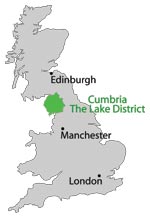- watch a clip from a BBC documentary about the effects of immigration on the city of Southampton
- do a gap fill exercise
- discuss / write about immigration
1) Discuss
- How has your life changed in the last few years?
- Has your city / town / country changed much in the last 10 years? How?
- What are the biggest changes in the world in the last 10 years?
 2) Watch
2) WatchYou are going to watch a clip from a BBC documentary called the "The Truth About Immigration". The clip talks about the changes in the population in the UK city of Southampton in the last 10 years. Southampton is a port on the south coast of England with a population of around 250,000.
Watch and answer
- How has Southampton been transformed in the last 10 years?
- What is special about the school in the clip?
- What nationalities are mentioned?
3) Practise
Do the gap-fill exercise. Watch the clip again if you need to check any answers.
Printable worksheet here
4) Discuss
- Do / Would you like to live or work in another country?
- Why do many people emigrate?
- What problems do you think people have when they emigrate?
- Why do you think so many immigrants have come to the UK in the last 10 years?
- What are the positive contributions that immigrants make to the economy and society?
- Do you think that immigrants have a responsibility to adapt to their new country? Should they learn the language and adapt to local customs?
- What are the effects of migration on both the migrants and the natives? How does it affect culture?
- What can be done to avoid problems in the future? What can politicians do? What should society do? How do you think the media should report immigration?
A summary of the documentary is here http://ampp3d.mirror.co.uk/2014/01/08/the-truth-about-the-bbcs-the-truth-about-immigration/
5) Write (IELTS)
1) To what extent will migration from the developing world to the developed world become a social and political issue in the 21st century? (250 words) (IELTS Task 2 Academic)
Plan your essay.
- Think about population, work, housing, education, health... What can be done to avoid problems in the future? Also think about culture - what are the effects of migration on both the migrants and the natives?
2) One of the major problems facing the world today is the growing number of refugees. The developed nations in the world should tackle this problem by taking in more refugees. To what extent do you agree with this opinion? (IELTS Task 2 Academic)
More
- Katie Melua on the BBC's 'This Week' discussing migration Advanced, Discussion Activities, IELTS, Katie Melua, Life in the UK, Listening, Migration, Writing
- Describe a city - Superlative Southampton Comparatives and Superlatives, Describing a place, Intermediate, Reading, Southampton, Upper Intermediate, Webquest
- Icing on the Cake FCE, Gerunds, Intermediate, Listening, Past Habits, Remember + Gerund, Migration, The Icing On The Cake, Used to, Would
- The Terminal Discussion Activities, Film and TV, IELTS, Intermediate, Listening, Migration, Modal Verbs, Reading, Upper Intermediate, Writing

















